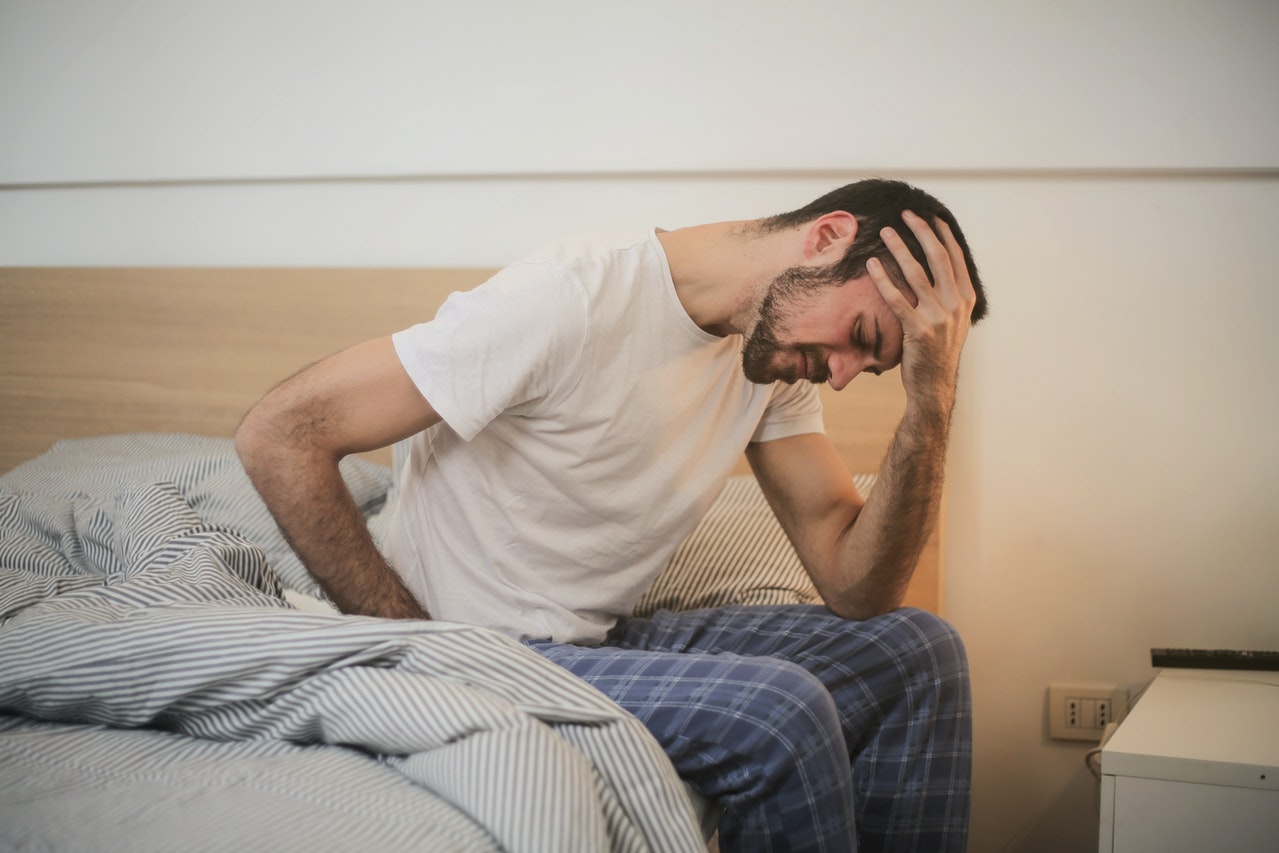Can You Get a Headache From Sleeping Too Much?

Oversleeping can seem like a great idea if you've been sleep-deprived recently, but you better think twice before it becomes a habit.
The short answer is - yes, you can get a headache from too much sleep and develop a host of other health problems like obesity and diabetes, fatigue, chronic pain, cognitive decline, and heart disease. Sleeping too much can cause extreme sleepiness during the day and can make you drowsy and unable to function properly during the day.
How Much Sleep Is Too Much, Though?
Well, the general rule of thumb for optimal hours of sleep that most scientists around the globe agree upon is 7-9 hours per night for adults. Kids and teenagers usually need a bit more than this, and older people usually need less. But this is the general framework that works for most adults out there.
Now, oversleeping is generally characterized as sleeping more than 9 or 10 hours per night, but for some people, this can even be 8 or 7 hours per night (mostly for older adults).
Why Does Sleeping Too Much Cause Headaches?
As we mentioned in the introduction, too much sleep can cause morning headaches, and there are multiple reasons why this happens. Let’s go into a little more detail about the most common ones.
A Host of Sleep Disorders Can Cause Morning Headaches
Sleep disorders like sleep apnea and insomnia are notorious for disrupting the circadian rhythm and causing a variety of health problems, and headache disorders are definitely among them.
This has to do with the way they interfere with your sleep phases, in particular, the REM sleep phase, which plays a large part in whether you get a good quality sleep in the morning and wake up rested, without a headache.
For example, insomnia meddles with the circadian rhythm and doesn't let your brain fully enter REM sleep. And so, when this happens, your body creates proteins that stimulate your nervous system further, which can result in morning headaches.
Sleep apnea is a type of sleep disorder that obstructs your breathing while you sleep. This depletes the body of oxygen during sleep, which can also result in morning headaches and other health conditions. The body and brain need oxygen to function properly and to enter the necessary sleep phases so you can feel rested in the morning.
You Suffer From Sleep Bruxism
Bruxism isn't as serious as it sounds, but it can be annoying. It's a condition often prompted by anxiety or stress that causes unconscious teeth grinding and jaw clenching. As the name says, sleep bruxism happens during sleep, but it can also happen anytime during the day, and you won't usually know it.
Sleep bruxism may cause facial pain, jaw pain, teeth problems, and—you guessed it—morning headaches.
If you think you suffer from it, make sure to talk to a healthcare professional so they can give you a proper treatment plan.
You Have Mental Health Issues
Mental health issues like anxiety, depression, and PTSD can all contribute to chronic pain, which in turn can result in chronic headaches (like migraines, for example)c, morning headaches, cluster headaches, and just an overall lower threshold for enduring pain.
These mental health issues can also lead to sleep disorders like insomnia and sleep deprivation, but also oversleeping.
One study featured in Stanford magazine finds a strong link between morning headaches, anxiety, and depression.
You're Under a Lot of Stress
Stress is known to be—if not the culprit, then certainly the catalyst—behind tons of health conditions. Morning headaches included.
What's interesting is that a US-led study that looked at sleep patterns, rest, and headache onset found that chronic headaches and migraine attacks happen more often when people start to relax after a stressful period. In short, when their stress levels start to drop, they may experience migraine attacks in the next 6, 12, and 18 hours.
Conclusion
Turns out that you can have too much of a good thing—that is, if you're oversleeping. In particular, you may get too much of a morning headache.
We saw in this article that the reasons for this can be multiple, and we haven't exhausted all of them here. If you notice you often suffer from morning headaches, it's best that you talk to a healthcare professional.
Additionally, it wouldn't hurt if you paid more attention to your sleep habits, like going to bed and waking up at the same time, no phones before bed, eating nutritious food, avoiding too much alcohol and caffeine, and exercising.
Taking care of your general health can go a long way. It might even get rid of that gnawing, annoying morning headache.
Sources:
- https://medicine.wustl.edu/news/hit-the-sleep-sweet-spot-to-keep-brain-sharp/
- https://health.clevelandclinic.org/waking-up-with-a-headache/
- https://www.ncbi.nlm.nih.gov/pmc/articles/PMC6267703/
- https://www.ncbi.nlm.nih.gov/pmc/articles/PMC4165901/
- https://www.theguardian.com/lifeandstyle/2021/oct/27/sleep-affluence-too-much-shut-eye-bad-health-older-people-oversleeping
- https://www.ncbi.nlm.nih.gov/pmc/articles/PMC3997296/
- https://www.ncbi.nlm.nih.gov/pmc/articles/PMC7016602/
- https://pubmed.ncbi.nlm.nih.gov/12531159/
- https://news.stanford.edu/news/2004/january21/headaches.html
- https://pubmed.ncbi.nlm.nih.gov/24670889/
